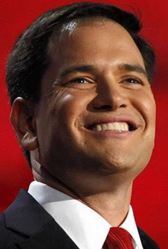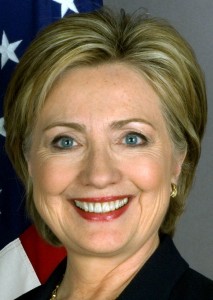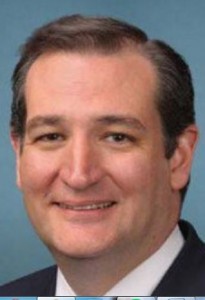The quest for the White House began Monday night in Iowa with the first caucus of the 2016 presidential election as candidates Hillary Clinton, Donald Trump, Ted Cruz, and Bernie Sanders, Marco Rubio, and a handful of others, attempted to secure the presidential nomination from their respective political parties.
Iowa is often cited as a state that will shape the rest of the campaign trail. Cruz won the Republican Caucus on Monday while Clinton won on the Democratic side in what was the closest vote in Iowa Democratic Caucus history (it took until Tuesday morning to declare a winner).
Where do these presidential hopefuls stand on housing policy? Housing policy is a subject that presidential candidates have avoided at every turn. In many of their debates and speeches, candidates were quite adamant about speaking on topics such as healthcare, immigration, and terrorist attacks and threats. This has led many in the industry to believe that housing has become a taboo in this presidential race.
Most of the news surrounding the housing market in the last year has been positive, aside from a dismal homeownership rate, and many metrics have returned to their pre-recession levels. With all the good news coming from the housing industry, housing policy has taken a back seat (or no seat at all) in presidential campaigns to other current hot-button issues such as Second Amendment rights, immigration reform, health care, and tax reform.
The absence of housing policy from campaign speeches of both candidates is especially curious because:
- Housing can make or break the economy. When the market crashed in 2008, the rest of the economy went with it. Despite the fact that housing makes up such a large part of the economy, the candidates have not talked about it.
- Both Democrats and Republicans have repeatedly said that some type of comprehensive housing reform is needed—after all, the FHFA’s conservatorships of Fannie Mae and Freddie Mac, which began in September 2008 and were intended to be temporary, continue more than seven years. It is not even a priority for the current Administration, as multiple top Obama officials have stated that such reform will not happen while Obama is president.
- The homeownership rate in the United States dropped to a 48-year low in 2015. Several of the candidates, Clinton included, have talked about building the wealth of the middle class. By that same token, homeownership has been repeatedly cited by economists as a key to building wealth for Americans; therefore, boosting the homeowership rate would boost the wealth of the middle class.
While homeowership or housing policy has not been directly mentioned, some of the candidates have discussed financial regulation. Candidates such as Clinton and Sanders have vowed to crack down on Wall Street banks, which they paint as the perpetrators of the 2008 financial crisis that rocked the country and triggered the Great Recession.
“Yes. Yes, yes, yes, yes, yes. Their shareholders have to know that yes, they will fail. And if they're too big to fail, then under my plan and others that have been proposed they may have to be broken up,” Clinton said late in 2015. “So I've said, if the big banks don't play by the rules, I will break them up," Clinton stated. "And I will also go after executives who are responsible for the decisions that have such bad consequences for our country. There are a lot of things we've got to do in our country, reigning in Wall Street is certainly one of them.”
The controversial idea that a financial institution can be labeled as “too big to fail” has also been included in the rhetoric of some presidential candidates.
With all the good news coming from the housing industry, housing policy has taken a back seat (or no seat at all) in presidential campaigns. . .
“If a bank is too big to fail, it is too big to exist,” Sanders said. “When it comes to Wall Street reform that must be our bottom line. This is true not just from a risk perspective and the fear of another bailout. It is also true from the reality that a handful of huge financial institutions simply have too much economic and political power over this country.”
On another occasion during the presidential campaign trail, Sanders stated that “We can no longer tolerate an economy and a political system that has been rigged by Wall Street to benefit the wealthiest Americans in this country at the expense of everyone else. I’ll rein in Wall Street behavior, so they can’t crash our economy again. Will they like me? No. Will they begin to play by the rules if I’m president? You better believe it. Greed, fraud, dishonesty and arrogance, these are the words that best describe the reality of Wall Street today. So, to those on Wall Street who may be listening today, let me be very clear. Greed is not good. In fact, the greed of Wall Street and corporate America is destroying the fabric of our nation. And, here is a New Year’s Resolution that I will keep if elected president. If you do not end your greed, we will end it for you.”
Republican candidates have been critical of the Dodd-Frank Wall Street Reform Act of 2010, which was created in response to the crisis.
"In Dodd-Frank, you have actually codified too big to fail,” Florida Senator Marco Rubio said. “We have actually created a category of systemically important institutions, and these banks go around bragging about it. You know what they say to people with a wink and a nod? We are so big, we are so important that if we get in trouble, the government has to bail us out. This is an outrage. We need to repeal Dodd-Frank as soon as possible. The big banks get bigger and bigger and bigger under Dodd-Frank and community banks are going out of business. And, by the way, the consequence of that is small businesses can’t get business loans.”
While Clinton has repeatedly stated her intention to get tough with Wall Street banks, her failure to talk about housing policy is especially notable since it has been widely rumored that current HUD Secretary Julián Castro will be her running mate if she wins the Democratic nomination. Castro publicly endorsed Clinton in October, and Castro appeared on the Late Show with Stephen Colbert last month. While on the show, Colbert asked Castro about being a vice presidential candidate on Hillary’s ticket, but the HUD Secretary was non-committal about it.

 theMReport.com Your trusted source for mortgage banking news
theMReport.com Your trusted source for mortgage banking news












